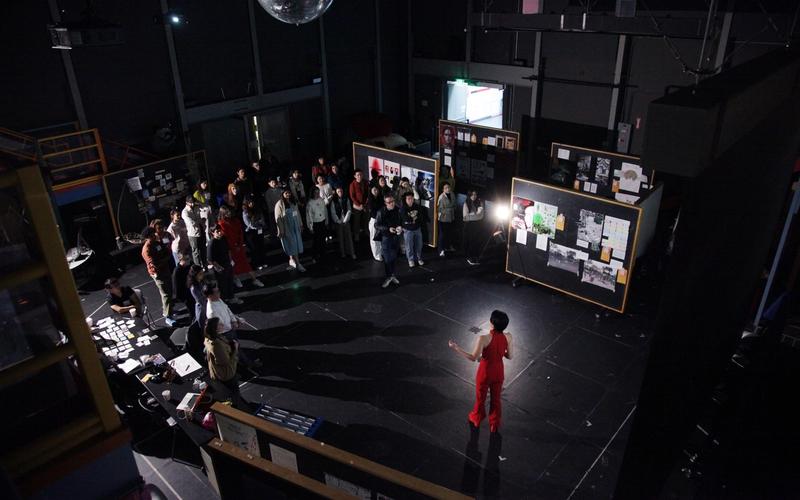Looking deep to see wide and far

Feb 17, 2025
MIT faculty from the departments of Anthropology, Electrical Engineering and Computer Science, and Architecture will lead interdisciplinary efforts in experimental design pedagogy through new and existing academic offerings. The selected proposals — Humane User Experience Design, and New Approaches for Scaling Design Education — will be funded as part of MAD’s Call for Design Curriculum.
By Michelle Luo
Jul 21, 2025
Following the 2024-25 Call for Design Curriculum, the Morningside Academy for Design (MAD) will support two initiatives: “Humane User Experience (UX) Design,” proposed by Associate Professor of Computer Science Arvind Satyanarayan and Professor of Anthropology Graham Jones, and “New Approaches for Scaling Design Education,” proposed by Associate Professor of the Practice in the department of Architecture Marcelo Coelho, who is also the director of the Design Intelligence Lab
The special topics undergraduate course 6.S061 Humane User Experience Design marks the return of user experience-focused curriculum to Course 6 (EECS). Satyanarayan and Jones bring experience in human-computer interaction and cultural anthropology in an interdisciplinary approach to UX design. Treating design as “applied anthropology,” the course will foreground how technical decisions are also a type of sociological intervention, offering an alternative to traditional “design thinking.”
“We believe the time is ripe for a fresh approach, inspired by our five years of research collaboration bridging and braiding our respective fields: Human-Computer Interaction and Cultural Anthropology,” states Satyanarayan’s and Jones’s proposal.
“We feel confident that the training we will offer in this class will provide MIT students with a solid interdisciplinary foundation to integrate additional coursework in both computer science and anthropology to consolidate highly marketable skills as UX researchers.”
“How do we truly scale design education and reach hundreds, thousands, or even millions of learners worldwide?” asks Coelho’s proposal.
New Approaches for Scaling Design Education aims to investigate methods to support larger numbers of design learners beyond the current limitations of traditional pedagogy. Led by Coelho, this initiative will re-imagine the design studio in both conventional and unorthodox ways by incorporating experiments in peer-critique, mentorship, generative AI, and other strategies.
“Design critique requires direct and continuous interaction with instructors who have limited time, while physical design and fabrication require space, materials, and tools which can be expensive and inaccessible to some students,”
observes Coelho. He will pilot the initiative throughout the design course 4.031 Objects and Interaction and share lessons learned to assist in scaling global design education.
The Call for Design Curriculum advances MAD’s mission to support faculty in their creative ideas to transform and develop design education across the Institute and beyond. Put forward by Skylar Tibbits, associate professor of Architecture and MAD’s assistant director for education, and Katherine Higgins, MAD’s academic-research program administrator, the call aims to foster interdisciplinary collaboration through the frame of design, and support design learning and practice at MIT.
“Design can be a meeting point for these different disciplines. Look at any department at MIT, and there are elements of design, whether they use that term or another,” says Higgins.
In addition to offering financial support for curriculum development, MAD will storytell their process and impact.
MIT faculty are such dedicated educators. They're focused on the students,” says Higgins. “By offering this storytelling element, we'll observe, support, and draw out those special moments in these classes to highlight the unique ways they’re approaching design pedagogy at MIT.”

Feb 17, 2025
Jan 14, 2025

Dec 8, 2024


.jpg?rect=1015,882,3485,2178&w=800&h=500)